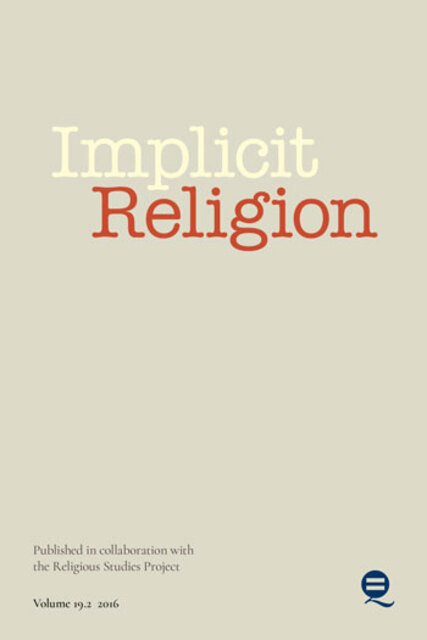"A Quaint and Dangerous Anachronism"? Who Supports the (Dis)Establishment of the Church of England?

Full description
This article synthesizes the contemporary evidence base for attitudes towards the Establishment of the Church of England, both as a principle and in terms of some of its specific manifestations. Secondary analysis is undertaken of 59 surveys of the general population, initially at headline level and subsequently by demographic sub-groups. Results from 22 studies of committed Anglicans (laity and clergy) are then summarized, for comparative purposes. Establishment and disestablishment do not emerge from this review as pressing issues, about which the majority of people feel especially strongly or are very knowledgeable. Nor are they necessarily holistic concepts, individual components being “picked and mixed” at will. There is no obvious groundswell of opinion for radical and urgent change, and thus little prospect of early steps to sever church-state links completely. Establishment is part of England’s religious furniture which is, in large measure, taken for granted or grudgingly accepted. It no longer entails much commitment and thus fails to meet the classic definition of implicit religion.
- typeImage
- created on
- file formatjpeg
- file size13 KB
- container titleImplicit Religion
- creatorClive D. Field
- issn1743-1697 (online)
- issue14.3
- publisherEquinox Publishing Ltd.
- publisher placeSheffield, United Kingdom
- rightsEquinox Publishing Ltd.
- volume
- doi
We use cookies to analyze our traffic. Please decide if you are willing to accept cookies from our website. You can change this setting anytime in Privacy Settings.
